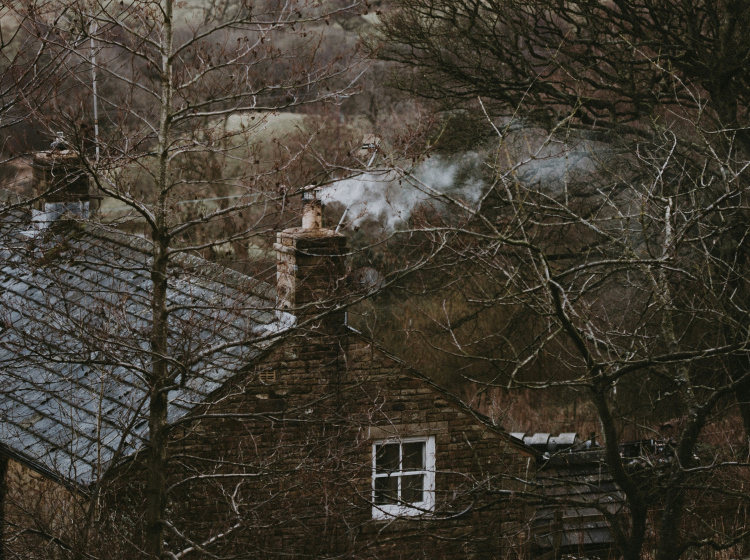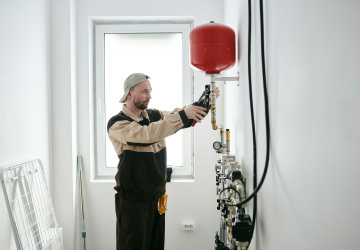Some boilers are banned from today. If your neighbor informs on you, you face a heavy fine
From September 1, a ban on heating with certain boilers applies in the Czech Republic. An amendment to the Air Protection Act comes into effect, prohibiting the use of boilers of emission classes I and II. Owners of these boilers face high fines for their use. In addition to the ban, the boiler subsidy program also ends, with support for boiler replacement now provided by the New Green Savings program.
From September 1, 2024, the long-announced ban on the use of boilers of emission classes I. and II. will come into effect in the Czech Republic. This measure is part of the government's effort to improve air quality and protect the environment. The new legislation, which applies to all households in the country, allows municipalities to impose high fines for violations of this ban, but enforcement will primarily be based on "reporting." The measure is expected to significantly reduce emissions of pollutants, particularly fine particulate matter, which have a negative impact on residents' health.
The ban on boilers of emission classes I. and II. follows several years of warnings, delays, and awareness campaigns aimed at informing citizens about the harmfulness of old boilers and the necessity of their replacement. These boilers, often more than twenty years old, do not meet modern environmental standards and significantly contribute to air pollution. Most of them were manufactured at a time when emission requirements were considerably more lenient, and therefore they produce many times more pollutants than modern devices today.
The use of boilers that do not comply with established emission standards is considered a violation of environmental protection regulations from today. Municipalities will have the authority to impose fines of up to 50,000 CZK upon discovering such an offense. These sanctions will apply to both homeowners and businesses that continue to operate banned boilers. In most cases, municipalities are expected to rely on reports from neighbors or other individuals rather than conducting large-scale inspections of compliance with the new conditions.
The regulation requiring the so-called hydraulic balancing of the heating system for gas heating began to apply in Germany last year for buildings...
In addition to the ban on old boilers, the popular boiler subsidy program that helped thousands of households finance the purchase of new eco-friendly boilers in recent years also ends today. Since its introduction in 2015, this program has been a key tool in transitioning to cleaner heating sources. During its duration, over 14 billion CZK was distributed, enabling the replacement of more than 100,000 boilers across the country.
The termination of boiler subsidies is part of a broader transformation of the state's energy policy. The government plans to redirect support for replacing non-ecological boilers and improving the energy efficiency of buildings into a new program called the New Green Savings. This program, which will now be the main tool for state support in the areas of energy savings and environmental protection, will offer a wider range of measures and support for various types of ecological investments.
Experts emphasize that even though the boiler subsidies are ending, people will still have the opportunity to apply for financial support for replacing non-compliant boilers through the new program. The focus is now on comprehensive solutions for household energy needs that bring long-term savings and simultaneously contribute to climate protection. Apart from boiler replacement, households will also take other measures to reduce the energy demand of their homes.
Environmental organizations welcome this step as a necessary tool for improving air quality in the Czech Republic. “Ending the operation of boilers of emission classes 1 and 2 makes a lot of sense from the perspective of reducing air pollution. For example, for a coal boiler in emission class 1, the standard sets the dust limit at 180 mg per cubic meter of flue gas, for a boiler in emission class 3 it's 125 mg/m3, and for emission class 5 it's 40 to 60 mg/m3, depending on the type of boiler. This is a difference that you and your neighbors will definitely notice,”, states the environmental organization Hnutí DUHA.
On the other hand, for some citizens, this ban may be financially challenging. Replacing a boiler with a more modern model is a significant investment that not everyone can afford. It is expected that especially in smaller municipalities, where the use of older boilers is widespread, there will be a search for solutions to help people cope with this transition. Municipalities and the state will have to ensure that the switch to cleaner technologies is as painless as possible and that no one finds themselves in a situation where they cannot afford to meet the new legal requirements.










